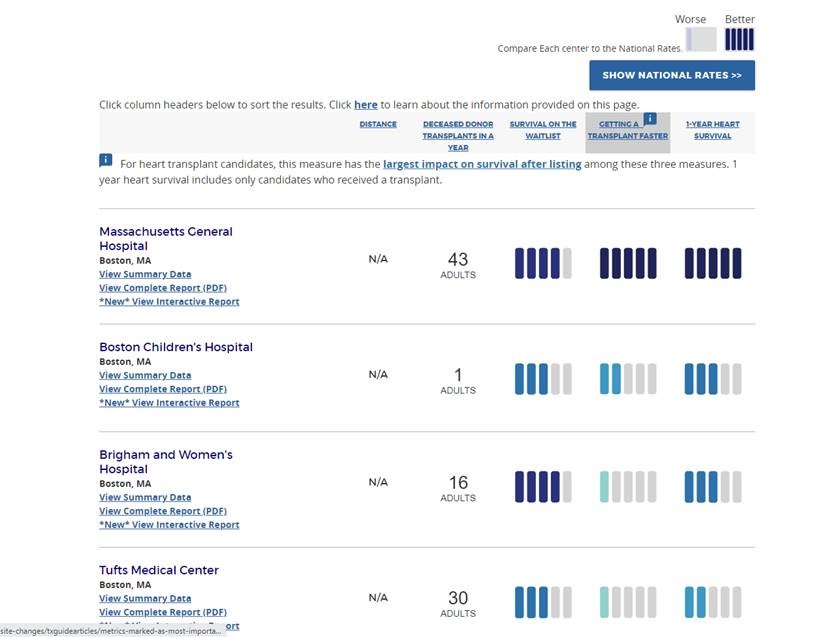News5 Minute ReadAug | 17 | 2022
Mass General Ranked Among the Top U.S. Heart Transplant Programs Despite COVID-19 Challenges
In 2021, the MGH Transplant Center completed 43 heart transplants – the hospital’s third-highest annual transplant volume in the program's history despite challenges driven by the COVID-19 pandemic. This success was reflected in this year’s Scientific Registry of Transplant Recipients’ list of national transplant program outcomes, with Mass General having one of the best overall performances in the U.S.
“The transplant program has grown significantly over the past five years,” says Greg Lewis, MD, medical director of the Cardiac Transplantation Program. “We now perform about 1% of the international volume here at Mass General.”
While there are many ways to treat patients with severe heart failure, there are no true curative therapies. Lewis says patients with advanced heart failure awaiting heart transplant are very ill and often require mechanical circulatory support or continuous inotropic support while awaiting transplant.

“Our numbers from 2021 show that when we get someone on the list, they don’t stay there very long,” says David D'Alessandro, MD, surgical director of Heart Transplantation and Ventricular Assist Devices. “We’re pretty aggressive about getting patients transplanted quickly. We’re among the top performers as far as access to organs goes."
Of the metrics used by the Scientific Registry of Transplant Recipients to measure programs’ success last year, the team at Mass General was most proud of its one-year survival rate of more than 96%. The hospital received the highest categorical rating in this area – a considerably higher score than the national average.
“We are proud of our program,” Lewis says. “Since the start of the COVID-19 pandemic, our intensive care units (ICU) have cared for high volumes of patients with COVID-19, so when we think about a procedure like a heart transplant that requires high doses of immunosuppression and ICU care, we were fortunate to be able to continue to offer this procedure.”
It’s important to keep organ donors healthy, too, as an active COVID-19 infection makes them ineligible for donation. The heart of a donor who was exposed months ago can still be a healthy, viable option for transplant, though, so testing both donors and patients awaiting transplants quickly has been critical to the program’s success since the start of the pandemic.
“Our program’s performance reflects true Mass General teamwork during the COVID-19 pandemic,” Lewis says. “Staff from across departments – nurses, surgeons, medical subspecialists, anesthesiologists, intensivists, psychiatrists, social workers, pharmacists and physical therapists – make our success possible.”
